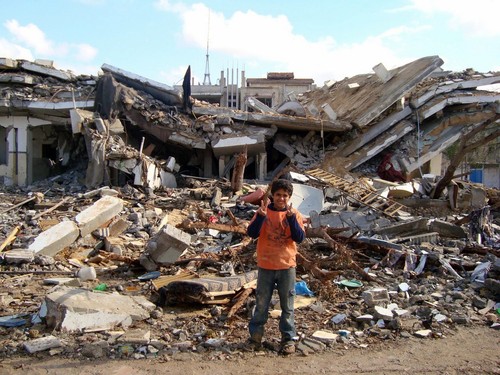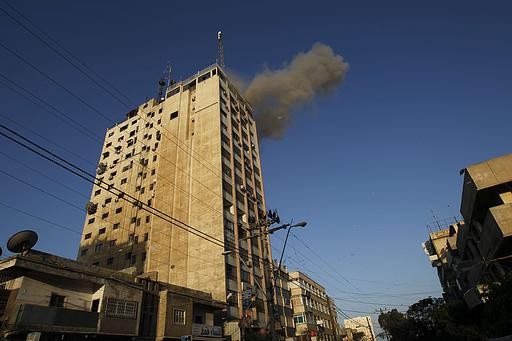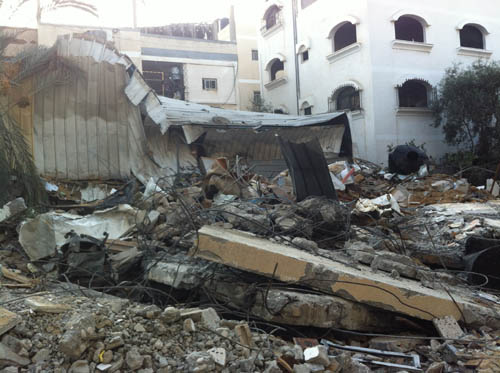Human rights groups to Israel: Halt aerial herbicide spraying in Gaza Strip amid critical coronavirus outbreak

As Palestinians in Gaza desperately fight to keep coronavirus at bay and prevent its outbreak into the wider population, Israel carried out another round of aerial spraying of herbicides in eastern Gaza on Sunday, 5 April 2020, that may potentially jeopardize food security of the civilian population at a time when it’s most critical.
Gisha – Legal Center for Freedom of Movement, Al Mezan Center for Human Rights, and Adalah – The Legal Center for Arab Minority Rights in Israel sent an urgent letter to Israeli authorities late yesterday afternoon demanding an immediate halt to Israel’s aerial herbicide spraying in the eastern Gaza Strip.
On Sunday morning, Israeli crop-duster planes flew along the perimeter fence separating Gaza and Israel, spraying chemicals assumed to be herbicides. The spraying was conducted sporadically starting at 6:30 AM and lasted for almost three hours, first spraying the eastern parts of the Gaza City district, before commencing southward over the eastern areas of the Middle Gaza district.
The sprayed chemicals reached Palestinian farmlands in both districts, and the impact on crops will become apparent in the coming days.
Palestinian farmers who were working the land east of the perimeter fence on Sunday morning told Al Mezan that at about 6:20 AM, they saw plumes of black smoke emanating from Israel’s side of the fence, a practice used by Israel in the past as a means to discern wind direction. A few minutes later, crop-duster planes flew along the perimeter fence spraying chemicals believed to be herbicides, that were carried by the winds into the Gaza Strip.
Similar rounds of spraying were carried out earlier this year, 14-16 January 2020, in areas adjacent to the fence from Beit Hanoun in northern Gaza to Rafah in the south.
On 16 January 2020, human rights organizations Gisha, Adalah, and Al Mezan sent a letter to then-Israeli Defense Minister Naftali Bennett, Military Advocate General Sharon Afek, and Attorney General Avichai Mandelblit with an urgent demand to refrain from conducting further aerial spraying of herbicides inside and near the Gaza Strip due to the severe damage to crops and the health risks posed to Gaza residents.
In the follow-up correspondence, the office of the Military Advocate General confirmed that the chemicals used were indeed herbicides and claimed that a new chemical had been introduced to curb the spread of herbicides deep into the Gaza Strip.
Al Mezan’s documentation however indicated that the sprayed chemicals damaged crops at a distance of at least 600 meters from the perimeter fence, with the total area of damage to cultivated land surpassing 280 hectares. At least 350 Palestinian farmers sustained financial losses, collectively exceeding one million U.S. dollars, from the January spraying.
International law requires that Israel, as the occupying power, ensures adequate living conditions in the Gaza Strip. However, data collected on the impact of aerial herbicide spraying since the practice was first recorded in 2014 strongly indicates that the spraying poses a serious threat to the right to life as it directly undermines food security and health. With access to health and food jeopardized by the potential spread of COVID-19 and the safety measures in place that push huge portions of the workforce to stay home, the chemical spraying is potentially compounding conditions at a critical time.
Gisha, Adalah, and Al Mezan urge the international community to intervene and pressure Israeli authorities to immediately cease all aerial spraying activities in and near the Gaza Strip, and to urge Israel to provide adequate reparation for those who have sustained financial losses as a result of the practice.
CLICK HERE to read the joint letter [Hebrew]
Related Press Releases:
- Human rights defenders to Israel: Stop spraying dangerous herbicides over Gaza Strip
- New multi-media investigation proves Israel's herbicide spraying near Gaza fence damages lands and crops deep inside the Strip
- Human rights groups demand Israel immediately halt renewed aerial herbicide spraying along Gaza fence


















